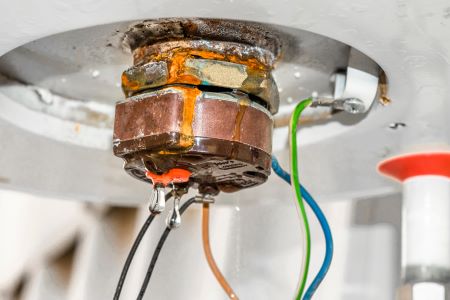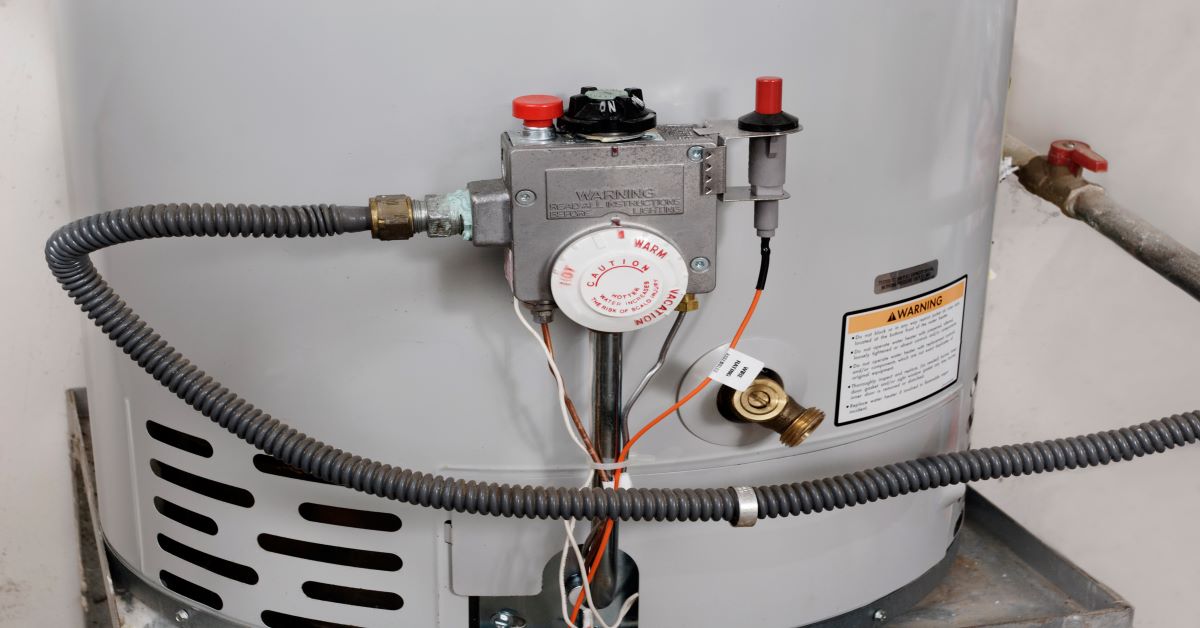Your water heater plays an integral role in smoothing your schedule before heading out for work; there’s nothing more important than a warm water shower in the morning, especially during the cold season. Unfortunately, water heaters deteriorate in performance as time goes, manifesting through various symptoms. Let us look at signs you need to get a new water heater.
It is more than ten years old
A standard water heater has a life expectancy of around ten years. Beyond this, chances are you’ll start noticing some apparent failures and inefficiencies. If your water heater is more than a decade old, it may be time to replace it. An aging water heater will not be as efficient in heating water and could eventually break down completely. Wait too long, and you may have to go without hot water until you can have it replaced. It’s high time you acknowledge the device has run its course and get a new one for your home.
The pilot light has gone out
If you have a gas-fueled water heater, and the pilot light keeps going off, it’s a sign that the heater is on its way out. The pilot light is integral to the water heater’s function, and if it keeps going off, it means there is something wrong with the unit. Not only does this mean the water heater isn’t functioning properly, but a faulty pilot light can also lead to a gas leak. It’s best not to take any chances and get a new heater before the old one completely breaks down.
It is producing strange noises
If your heater is starting to make strange noises, it’s another clear sign that it’s time for a replacement. Strange noises could indicate that the unit is about to burst or some other serious issue like sediments hardening at the bottom. It’s always better to be safe than sorry and get a new water heater before the problem gets any bigger.
The water from your tap is rusty or murky
If you see rusty or cloudy water coming through your tap, it’s time to get a new water heater. Murky or rusty water is a sign that your heater is no longer functioning the way it should. It’s a sign that sediment from the tank has started to leak into your tap water, which is not only unappealing but could also be dangerous for your health.
The water smells strange
If your tap water suddenly starts to smell strange, it could signify something wrong with the water heater. Smells commonly attributed to water heater problems include a sulfuric aroma (like rotten eggs,) a musty or moldy smell, or even a metallic one. If you notice any weird smells coming from your taps, it’s best to call a professional in to inspect your heater, if not replace it entirely.
It’s not heating the water sufficiently
If your water heater can no longer heat cold water to a comfortable temperature, it’s time for a replacement. Insufficient hot water supply decreases energy efficiency and even allows the buildup of bacteria that could make you sick. If you notice an irregular heating cycle, it’s time to get a new heater.
You keep on calling the repairman
Water heaters are not meant to be repaired indefinitely – eventually, they will need to replacing altogether. If you find yourself constantly calling the repairman for your water heater, it’s probably a sign that it’s time to get a new one. It’s only cost-efficient to repair your heater for so long; if you find yourself spending more on repairs than what a new water heater would cost, it’s time to make the switch.
The thermostat is failing
If the thermostat on your water heater is no longer working, it’s a clear sign that you need to get a new one. A failing electrical thermostat could lead to all sorts of problems, such as an inability to control the temperature or heating elements. When your water heater isn’t performing the way it should because of a faulty thermostat, it’s time to replace it.
Leakage
 If there is any leakage coming from your water heater, it’s time for a replacement. A leaking water heater could cause all sorts of problems in your home, from water damage to electrical issues. If there are signs of leakage, it’s best to get a new water heater as soon as possible.
If there is any leakage coming from your water heater, it’s time for a replacement. A leaking water heater could cause all sorts of problems in your home, from water damage to electrical issues. If there are signs of leakage, it’s best to get a new water heater as soon as possible.
Sediment buildup at the bottom of the tank
The only thing you should find in your water heater is water. If you notice sediments at the bottom of your water heater tank, it’s a sign that the unit is no longer functioning correctly. Sediment deposits result from rusting and corrosion in the tank, which could eventually clog up the system. Any traces of sediments at the bottom is a red flag that should prompt you to get a new machine.
What can cause your water heater to break down?
A few things can cause your water heater to break down, such as sediment buildup, corrosion, and rusting – as well as the simple passage of time. If you’re not careful, these issues could eventually lead to a complete breakdown of the unit. That’s why it’s essential to regularly conduct maintenance on your water heater and get a new one if you’re starting to see any signs of trouble. It’s best not to put it off until your heater no longer works at all.
Got Water Heater Issues?
If your water heater is starting to give you trouble, you better get it checked out by a professional. At John’s Plumbing & Pumps, we have a team of experienced technicians that can inspect your system and diagnose the problem. You may not be sure what to do, but we will be. Give us a call anytime you need water heater replacement, repair, or installation!
FAQ
How long do water heaters last?
Most water heaters have a lifespan of around eight to twelve years. However, this can vary depending on the make and model of the unit.
Should I get a tankless or traditional water heater?
This is a question that only you can answer, as it depends on your needs and preferences. Tankless water heaters are more energy-efficient, but traditional water heaters can provide more gallons of hot water.
What are the signs that I need a new water heater?
Several signs indicate that you need a new water heater, such as insufficient heating, leakage, sediment buildup, and thermostat failure.

